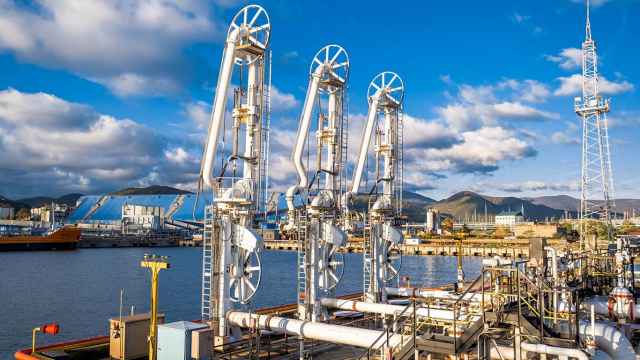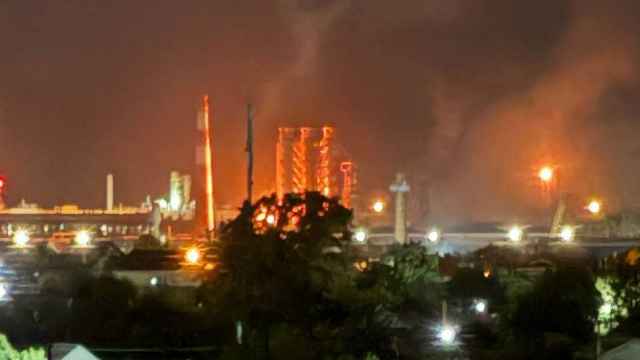Ongoing Ukrainian drone attacks on Russia’s energy infrastructure have reduced the country’s fuel exports to their lowest levels since the invasion of Ukraine, Bloomberg reported Wednesday.
Average daily exports fell to 1.88 million barrels in the first 10 days of October, the lowest level since at least early 2022, according to data from analytics firm Vortexa compiled by Bloomberg.
Russia’s total refining output remains below 5 million barrels per day, also the lowest since spring 2022, following strikes that have hit more than 20 major refineries.
Seasonal maintenance work has added further downward pressure.
The government has banned gasoline exports in an effort to ease domestic shortages caused by the slump in refining output.
A September strike also damaged the Ust-Luga terminal, which handles about 60% of Russia’s naphtha exports, a key feedstock for petrochemical production. As a result, naphtha shipments plunged 43% month-on-month to just 198,000 barrels per day in October, the lowest since January 2022.
Exports of diesel and gasoil rose 13% from September while fuel oil exports declined by 8%, Bloomberg said.
The International Energy Agency (IEA) warned this week that Russian oil companies will continue to feel the effects of the Ukrainian attacks for nearly a year, noting that one in three refineries has been hit since August.
Refining output is unlikely to return to its normal levels before June 2026, the IEA said in a report published Tuesday.
That forecast does not account for potential future damage if Ukrainian drone strikes continue. For now, refining throughput is estimated to have dropped by about 10% since the attacks began.
Naphtha exports face another potential setback from Taiwan, one of Russia’s largest buyers alongside India.
Taiwan increased its imports of Russian naphtha sixfold in the first half of this year compared with 2022, purchasing 1.9 million tons worth $1.3 billion, according to estimates from the Center for Research on Energy and Clean Air.
However, Taiwan’s economy minister recently said that local companies would halt purchases of Russian naphtha if requested by the European Union.
A Message from The Moscow Times:
Dear readers,
We are facing unprecedented challenges. Russia's Prosecutor General's Office has designated The Moscow Times as an "undesirable" organization, criminalizing our work and putting our staff at risk of prosecution. This follows our earlier unjust labeling as a "foreign agent."
These actions are direct attempts to silence independent journalism in Russia. The authorities claim our work "discredits the decisions of the Russian leadership." We see things differently: we strive to provide accurate, unbiased reporting on Russia.
We, the journalists of The Moscow Times, refuse to be silenced. But to continue our work, we need your help.
Your support, no matter how small, makes a world of difference. If you can, please support us monthly starting from just $2. It's quick to set up, and every contribution makes a significant impact.
By supporting The Moscow Times, you're defending open, independent journalism in the face of repression. Thank you for standing with us.
Remind me later.






